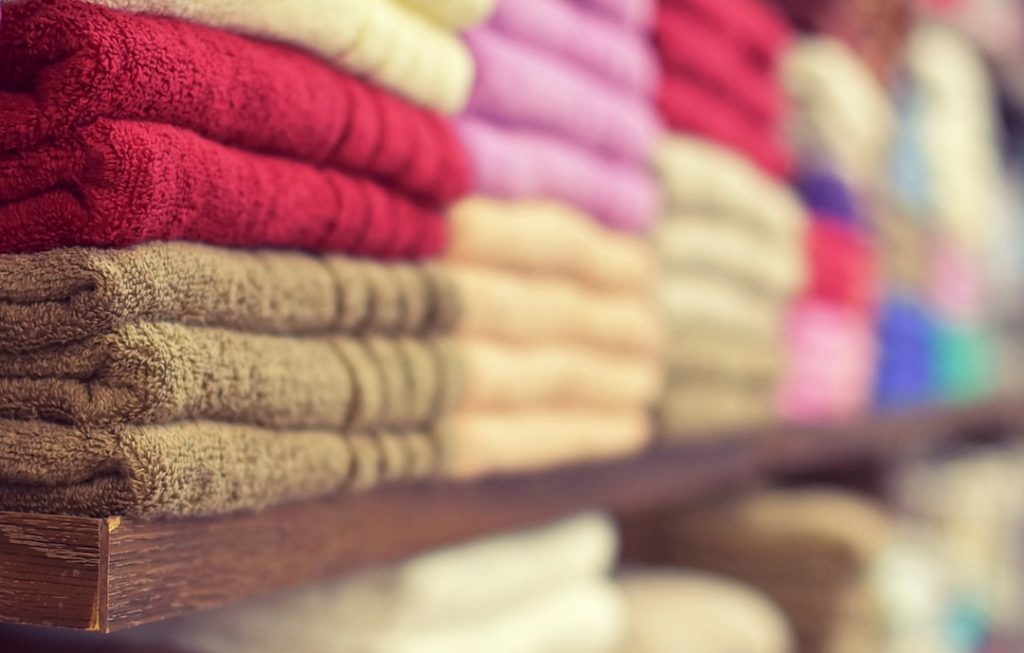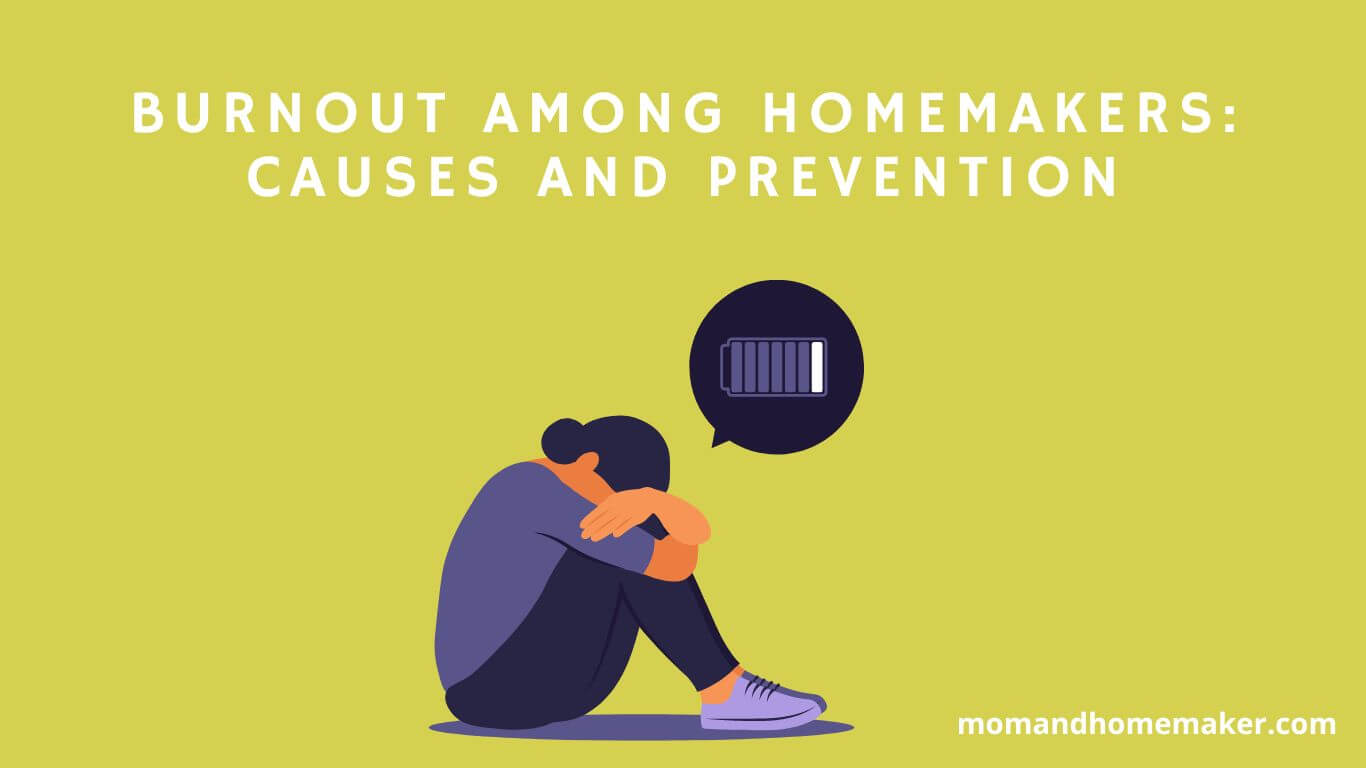There’s nothing worse than wrapping yourself in a towel after a shower, only to be greeted by a strong mildew smell. It not only ruins the experience but also leaves you wondering why this is happening. The truth is, there are several reasons why towels develop a mildew odor, even after washing them.
In this discussion, the reasons why towels develop that unpleasant odor and, more importantly, how to fix it will be explained. We’ll cover everything from the impact of a damp environment to the consequences of using low-quality towels.

Damp Environment
In a damp environment, towels can quickly develop a musty odor due to the presence of moisture. It can be frustrating when you reach for a towel after a refreshing shower, only to be greeted with an unpleasant smell. But don’t worry, there are solutions to this problem that will ensure your towels remain fresh and odor-free.
One important factor in preventing that musty smell is controlling humidity. High humidity levels contribute to the growth of mildew and mold, which are the main causes of that unpleasant odor.
To combat this, make sure to keep your bathroom well-ventilated by using an exhaust fan or opening a window. Using a dehumidifier in your bathroom can help reduce moisture in the air, keeping your towels dry and fresh.
Another crucial aspect to consider is towel storage. After using a towel, make sure to hang it up properly to allow for proper air circulation. Avoid leaving damp towels in a pile or crumpled up, as this creates a breeding ground for bacteria and mildew. Instead, hang them on a towel rack or spread them out on a drying rack to ensure they dry thoroughly.
Improper Drying Techniques
To keep your towels fresh and odor-free, it’s important to avoid improper drying techniques. Proper drying is crucial in preventing that unpleasant mildew smell. Here are some tips to help you keep your towels smelling fresh:
- Hang them up: After using your towels, hang them up properly using a towel rack or hook. This allows air circulation and promotes faster drying. Avoid leaving them in a crumpled heap on the bathroom floor or in a damp pile in the laundry basket.
- Avoid overcrowding: When using a dryer, make sure not to overload the machine. Overcrowding can prevent proper airflow, leading to damp towels. Give them enough space to move around and dry thoroughly.
- Choose the right setting: Opt for a higher heat setting when using a dryer. The heat helps evaporate the moisture, preventing the growth of mildew. However, be cautious not to use excessive heat, as it can damage delicate towels.
Infrequent Washing
If you don’t wash your towels enough, they’ll start to smell like mildew. Washing them regularly is important to prevent the buildup of bacteria and mold that causes the unpleasant odor.
Neglecting to wash your towels allows these microorganisms to multiply and thrive.
Washing Frequency Impact
Failing to wash your towels regularly enough can result in the buildup of mildew, leading to unpleasant odors. It’s important to wash your towels regularly to maintain their freshness and prevent the growth of bacteria and mold. Here are some key impacts of not washing them frequently:
- Bacterial growth: Not washing your towels often enough allows bacteria to accumulate, which can cause health problems such as skin infections or respiratory issues.
- Odor buildup: The longer you go without washing your towels, the more they’ll retain moisture and develop a musty smell due to the growth of mildew and mold.
- Decreased absorbency: Over time, dirt, oils, and soap residue can accumulate on your towels, reducing their ability to effectively absorb water.
Drying Methods and Mildew
Regularly washing your towels is important for preventing bacterial growth, eliminating odor, and ensuring effective drying methods. It’s especially crucial in preventing the growth of mildew, particularly when washing is infrequent.
Improper care and storage of towels can contribute to the development of mildew. When towels aren’t washed regularly, moisture from previous uses can remain trapped in the fibers, providing an ideal environment for mold and mildew to thrive.
Moreover, if towels aren’t adequately dried after each use, they can become damp and develop a musty smell. To prevent this, it’s recommended to hang your towels in a well-ventilated area after use and avoid folding them until they’re completely dry.
Preventive Measures for Mildew
To prevent mildew when washing your towels infrequently, make sure they’re completely dry before storing them. Leaving damp towels folded or rolled up can create the perfect environment for mildew to thrive.
Here are some tips to prevent mildew and keep your towels fresh and odor-free:
- Hang your towels on a towel rack or spread them out flat on a drying rack for air circulation and quick drying.
- Avoid storing towels in a humid or poorly ventilated bathroom, as this can promote mildew growth.
- If you need to store towels for a longer period, ensure they’re completely dry before placing them in a closet or storage bin.
- Consider using moisture-absorbing products like silica gel packets to keep the storage area dry.
Hard Water Residue
Do you notice white stains on your towels after washing them? That’s hard water residue caused by minerals in your water supply.
To clean hard water stains, use a vinegar or lemon juice solution. You can prevent mineral buildup by using a water softener or installing a water conditioner.
To remove limescale deposits, try a mixture of vinegar and baking soda and scrub the affected areas.
Cleaning Hard Water Stains
Eliminate hard water stains with these simple cleaning techniques. Here are three effective methods for removing stains caused by hard water:
- Vinegar: Mix equal parts of white vinegar and water in a spray bottle. Spray the solution onto the stained surface and let it sit for a few minutes. Scrub the area with a brush or sponge, then rinse with water. Vinegar’s acidity helps dissolve the mineral deposits, leaving your surfaces clean and shiny.
- Lemon juice: Squeeze fresh lemon juice onto the stained area and let it sit for a few minutes. Use a scrub brush or sponge to gently scrub the stain, then rinse with water. The natural acids in lemon juice break down the hard water residue, restoring the surface’s original shine.
- Baking soda: Create a paste by mixing baking soda with a small amount of water. Apply the paste to the stained surface and let it sit for a few minutes. Scrub the area with a brush, then rinse with water. Baking soda’s abrasive properties help remove the stubborn hard water stains.
Try these cleaning methods to get rid of hard water stains and enjoy a clean, fresh home.
Preventing Mineral Buildup
Dealing with mineral buildup from hard water residue can be frustrating. To keep your towels fresh and odor-free, it’s important to prevent mineral buildup.
One effective method is using natural fabric softeners. These softeners not only make your towels feel softer, but they also help prevent mold growth. You can add natural fabric softeners like vinegar or baking soda to your laundry during the rinse cycle. They work by breaking down the minerals in hard water, preventing them from accumulating on your towels.
Another way to reduce mineral buildup is by using distilled water or installing a water softener. These measures can help keep your towels clean, fresh, and free from any unpleasant odors caused by hard water residue.
Removing Limescale Deposits
To effectively remove limescale deposits, there are two main methods you can use: a descaling solution or a mixture of vinegar and water. These methods are simple and cost-effective, making them great for restoring the freshness of your towels. Here are three effective ways to remove limescale buildup:
- Use a descaling solution: Look for a commercial descaling solution specifically designed to remove mineral deposits. Follow the instructions on the packaging to ensure safe and effective usage.
- Mix vinegar and water: Create a mixture of equal parts vinegar and water. Soak your towels in this solution for about an hour, then wash them as usual. The acidic properties of vinegar will help dissolve the limescale buildup.
- Scrub with a brush: For stubborn limescale deposits, gently scrub the affected areas with a brush or scrubbing pad. This will help dislodge the residue and make it easier to remove during washing.
Excessive Fabric Softener
Using too much fabric softener can cause your towels to develop a musty smell of mildew. Fabric softener is designed to make towels soft and fluffy, but excessive use can lead to a buildup of the fabric, trapping moisture and preventing proper drying.
This creates a damp environment that promotes the growth of bacteria and mold, resulting in an unpleasant mildew odor.
To avoid this issue, consider using alternatives to fabric softener. Natural odor removers like vinegar or baking soda can be effective substitutes. Vinegar not only eliminates odors but also acts as a natural fabric softener. Simply add half a cup of vinegar to the rinse cycle of your washing machine.
Baking soda is another great alternative as it neutralizes odors. Add half a cup of baking soda to the wash cycle along with your detergent.
Using Too Much Detergent
Using too much detergent can contribute to the unpleasant smell of mildew in your towels. When you use an excessive amount of detergent, it can leave behind residue that’s difficult to rinse out completely. This residue can trap moisture and provide the perfect breeding ground for mildew and bacteria. To avoid this issue, it’s important to use the correct amount of detergent when washing your towels.
Here are three mistakes to avoid when it comes to using detergent for towel care:
- Using too much fabric softener: While fabric softener can make your towels feel softer, using an excessive amount of it can contribute to the mildew smell. Fabric softener can leave a residue on your towels that traps moisture and creates an environment for mildew to grow.
- Overloading the washing machine: Putting too many towels in the washing machine at once can prevent them from getting thoroughly clean. When towels are overcrowded, the detergent may not penetrate through all the layers, leaving behind dirt and bacteria.
- Not using enough detergent: On the other hand, using too little detergent can also lead to a mildew smell. Insufficient detergent may not effectively remove dirt, oils, and bacteria from your towels, allowing them to accumulate over time.
Storing Towels in a Humid Area
If you store your towels in a humid area, you might notice that they develop a damp and musty smell. The moisture in the air makes it hard for the towels to dry completely, which creates the perfect conditions for mildew to grow.
To prevent this, it’s important to find a dry and well-ventilated storage spot that allows the towels to air out and stay fresh.
Dampness and Towel Odor
Storing towels in a humid area can result in lingering wetness and unpleasant smells. This occurs because the moisture in the air becomes trapped in the towels, creating an environment where bacteria and mold can thrive.
To prevent the musty odor, follow these tips:
- Ensure good airflow: Make sure the area where you store your towels has proper ventilation to prevent moisture buildup.
- Keep towels dry: After using towels, hang them up to dry completely before storing them. This helps prevent wetness and discoloration.
- Use dehumidifiers or moisture absorbers: If the storage area is consistently humid, consider using dehumidifiers or moisture absorbers to reduce moisture in the air.
Effects of Humidity
Storing towels in a humid area can have negative effects on their freshness and odor. High humidity can greatly impact the quality of your towels. When towels are exposed to moisture for long periods, it creates an ideal environment for bacteria and mold to grow. The moisture in the air can seep into the towel fibers, causing them to become damp and musty.
This not only results in an unpleasant smell but also reduces the towel’s ability to absorb water, making it less effective in drying you off. Additionally, mold and bacteria can be harmful to your health, causing allergies and respiratory issues.
To avoid these negative consequences, it’s important to store your towels in a dry and well-ventilated area.
Preventing Mildew Growth
To prevent mildew growth, make sure to store your towels in a dry and well-ventilated area. Here are some tips to help you keep your towels fresh-smelling and prevent mold growth:
- Hang your towels up after using them: Allowing your towels to fully dry before storing them will prevent dampness and discourage the growth of mildew.
- Avoid storing towels in a humid bathroom: Bathrooms tend to have high humidity levels, which create an ideal environment for mold growth. Consider storing your towels in a different area of your home, such as a linen closet.
- Use moisture-absorbing products: Placing moisture-absorbing products like silica gel packets or activated charcoal near your towels can help eliminate musty odors and prevent mold growth.
Leaving Wet Towels in the Hamper
If you often leave wet towels in the hamper, you might notice that they start to develop a lingering mildew smell. It’s important to understand that taking care of your towels properly is crucial in preventing towel odor.
When wet towels are left in the hamper for an extended period, they create a damp environment where mildew thrives. The warm, moist conditions provide the perfect breeding ground for bacteria to grow and produce that unpleasant smell.
To prevent this from happening, make sure to hang your towels up to dry after each use. This allows them to air out and dry properly, preventing any moisture from accumulating. If you don’t have a towel rack, you can simply drape them over a shower rod or even a chair.
It’s also a good idea to wash your towels regularly, ideally every three to four uses, to keep them fresh and clean.
Moreover, if you notice any towels that are already damp or have an odor, don’t toss them directly into the hamper. Instead, hang them up to dry first, or even consider washing them immediately to prevent the odor from spreading to other towels.
Using the Wrong Laundry Products
Using the wrong laundry products can contribute to the unpleasant mildew smell in your towels. It’s important to choose the right laundry detergent and other products to ensure that your towels come out fresh and clean every time. Here are some things to consider:
- Laundry detergent alternatives: Traditional laundry detergents can sometimes leave a residue on your towels, which can trap moisture and lead to mildew growth. Consider using alternative options such as baking soda or vinegar. Baking soda acts as a natural deodorizer and can help remove any lingering odors. Vinegar, on the other hand, has antibacterial properties that can kill off any mildew-causing bacteria.
- Towel disinfection techniques: In addition to using the right laundry products, it’s also important to disinfect your towels regularly. One effective method is to add a cup of white vinegar to the wash cycle along with your regular detergent. Another option is to use hydrogen peroxide, which can help kill bacteria and eliminate odors. Simply add half a cup to your laundry load and let it do its magic.
- Proper drying and storage: After washing your towels, make sure to dry them thoroughly before storing them. Hang them up to air dry or use a dryer on a low heat setting. Avoid leaving them damp or crumpled up, as this can create the perfect environment for mildew to thrive.
Not Using Hot Water for Washing
Using cold water instead of hot water for washing can contribute to the mildew smell in your towels. Hot water has several benefits for your towels, including killing bacteria, removing oils and dirt, and helping to dissolve detergent more effectively.
When you wash towels in cold water, these benefits are reduced, allowing bacteria to thrive and leaving behind residue that can lead to a musty odor. To prevent this, it’s important to use hot water when washing your towels.
If hot water isn’t available, there are alternative washing methods that can help eliminate the mildew smell. One option is to add white vinegar to the wash cycle. Vinegar has antimicrobial properties that can help kill bacteria and remove odors.
Another option is to use an oxygen bleach, which is safe for colored towels and can effectively remove the mildew smell. Finally, you can try washing your towels with a laundry booster specifically designed to eliminate odors.
Overloading the Washing Machine
To prevent towels from smelling like mildew, avoid overloading the washing machine. When you stuff too many towels into the machine, they don’t have enough space to move around and get properly cleaned. This can lead to a buildup of bacteria and mold, resulting in an unpleasant mildew smell.
To ensure your towels come out fresh and odor-free, follow these tips:
- Load the machine properly: Don’t cram too many towels into one load. Leave enough space for them to freely circulate and get thoroughly washed.
- Use the right amount of detergent: Adding too much detergent won’t make your towels cleaner. It can leave a residue that contributes to the mildew smell. Follow the manufacturer’s instructions for the correct amount of detergent to use.
- Clean the washing machine regularly: Mold and bacteria can accumulate in the drum and other parts of the machine. To prevent this, perform regular washing machine maintenance. Run an empty cycle with hot water and vinegar or a washing machine cleaner to eliminate any lingering odors and prevent mold growth.
Not Cleaning the Washing Machine Regularly
Neglecting regular cleaning of your washing machine can lead to the growth of mold and bacteria, resulting in towels that smell like mildew. Cleaning your washing machine is an important part of maintaining your laundry and ensuring fresh, odor-free towels.
When you don’t clean your washing machine regularly, dirt, soap residue, and moisture can accumulate, creating an ideal environment for the growth of mold and bacteria.
To prevent this, it’s crucial to establish a regular cleaning routine for your washing machine. Follow these simple steps to effectively clean your washing machine:
- Run an empty hot water cycle with vinegar.
- Wipe down the drum, door, and detergent dispenser.
- Clean the rubber gasket and filter.
- Run an empty hot water cycle with baking soda.
- Leave the door open to promote air circulation.
Using Low-Quality Towels
If your towels always smell like mildew, it could be because they’re made from low-quality materials. Low-quality towels tend to retain moisture more easily, which leads to the growth of mildew and bacteria.
To prevent this issue, it’s important to invest in towels made from high-quality materials and follow proper care instructions. Make sure to wash them regularly and ensure they’re thoroughly dried.
Material Quality Affects
Using low-quality towels can contribute to the unpleasant smell of mildew. When it comes to material quality, there are a few important factors that can affect the smell of your towels:
- Fabric Composition: Towels made from inferior materials may not have the right composition to effectively absorb moisture. This can cause towels to stay damp for longer periods, creating an environment for mildew to thrive.
- Towel Maintenance: Low-quality towels may not withstand regular washing and drying. The fibers can break down, making it harder to remove bacteria and mildew during the cleaning process.
- Durability: Inferior towels may not be as sturdy as higher-quality options. This can result in fraying or thinning of the fabric, which can trap moisture and contribute to the growth of mildew.
Investing in higher-quality towels can help you avoid these issues. You’ll have fresh and clean towels without the lingering smell of mildew.
Proper Care Instructions
To properly care for low-quality towels and prevent the growth of mildew, it’s important to follow specific care instructions. By using clear, straightforward language and providing context, you can better understand how to care for your towels.
When folding your towels, fold them neatly and evenly to prevent moisture from getting trapped. Avoid leaving damp towels crumpled up, as this can promote the growth of mildew. Instead, hang your towels up to dry completely before storing them.
Choose a well-ventilated area for towel storage, such as a towel rack or open shelves, to allow air circulation and prevent moisture buildup. Regularly wash your towels using hot water and a mild detergent to remove any bacteria or odor-causing substances.
Regular Washing Routine
Maintaining Fresh Towels
To keep your low-quality towels fresh and free from bacteria and odors, it’s important to establish a regular washing routine. Follow these simple steps to ensure your towels stay clean and smell great:
- Choose a high-quality laundry detergent: Opt for a detergent specifically designed to remove tough stains and odors. Look for one that contains enzymes, as they effectively break down bacteria and mold.
- Wash towels separately: Avoid washing towels with other items to prevent bacteria transfer and lingering odors.
- Proper towel storage: After washing, hang your towels in a well-ventilated area to allow them to dry completely. Avoid folding or stacking damp towels, as this can create a breeding ground for mildew.
Ignoring Mildew Smell Warning Signs
If you smell a musty odor coming from your towels, don’t ignore it as a minor inconvenience. It could be a warning sign of mildew. Ignoring the mildew smell on your towels can have serious consequences for your health and the longevity of your towels.
Mildew is a type of fungus that thrives in warm and damp environments. When it grows on your towels, it can cause various issues.
One consequence of ignoring the mildew smell is that it can lead to further growth and spread of the fungus. This can result in a stronger and more pungent odor, making your towels unpleasant to use.
Additionally, prolonged exposure to mildew can have negative health effects. Breathing in the spores released by the fungus can trigger allergies, respiratory issues, and infections in individuals with weakened immune systems.
To avoid these health risks and keep your towels smelling fresh, it’s crucial to address the mildew smell promptly. Follow proper washing and drying techniques, use hot water and a good detergent, and ensure your towels are completely dry before storing them.
Conclusion
There are several reasons why towels may develop a mildew smell. By identifying the root cause of the issue and implementing proper cleaning and drying techniques, it is possible to prevent the growth of mildew and keep towels smelling fresh.
These include improper drying, infrequent washing, and storing towels in a damp environment. However, by following a few simple steps, such as washing towels with vinegar or baking soda, ensuring they are completely dry before storing, and allowing them to air out regularly, it is possible to eliminate the mildew smell and keep towels fresh and clean.














